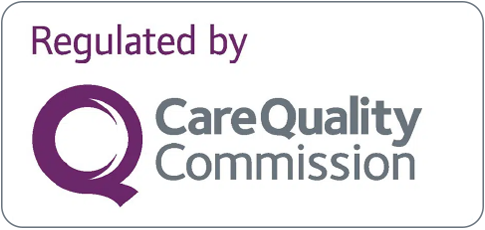HRT is consistently proven to be the most effective treatment for menopausal symptoms for most women.
What are Hormones?

Hormones control cell growth, development, protein synthesis & metabolic rate. Optimum levels are essential for quality of life, good health and disease prevention.
HRT (Hormone replacement therapy) follows individualised diagnosis of sex hormone imbalance from a detailed discussion.
The objective of HRT treatment is to optimize hormone levels in the blood, help reduce symptoms associated with low levels of hormone and improve general wellbeing. The hormones are prescribed and tailored for each patient to ensure optimum effectiveness.
Interpretation of hormone deficiency is based on symptom evaluation, medical history, lifestyle, blood analysis and widespread understanding of the data and research available on HRT and extensive clinical experience.
Sex hormones include
- Oestrogen
- Progesterone
- Testosterone
Sex hormones control our
- nervous system
- cardiovascular system
- Immune system
- Gastrointestinal system
- Skeletal and muscular systems
- Endocrine system
”Perimenopause and Menopause can be the cause of mood disorders and memory symptoms in the menopause transition whether a woman has pre-existing depression / anxiety or not.
Menopause Practice StandardsBritish Menopause Society
What symptoms might I notice?
Perimenopause / Menopause
Oestrogen deficiency causes many symptoms which include
-
hot flushes
-
period problems / heavy periods
-
irritability, depression, mood swings
-
insomnia
-
aches and pains including joint ache
-
vulval changes
-
memory problems
-
worsening of premenstrual stress disorders
-
osteoporosis
-
skin and hair changes
-
palpitations
How can treatment help me?
By correcting hormonal imbalance caused by menopause you can have
-
reduced blood pressure and reduced incidence of heart disease
-
‘good cholesterol’ balance correction, (reducing the ‘bad’ LDL type)
-
prevention of fat in the organs reducing cardiovascular risk
-
improved sensitivity to insulin and reduced incidence of diabetes
-
immune system response improvement
-
improved skin, hair and muscles
-
improved mood, brain function and health
-
improved pain management
-
reduced loss of bone in spine and hip, increased BMD
-
improved sexual function, reduction in urine infections
-
possible reduction in risk of dementia
At what age might I need this?
Patients most commonly experience menopause symptoms from the age of about 45. Some women experience an early menopause (40-45y) or Premature Ovarian Insufficiency (under 40y).
Are there any side effects?
There can be effects of having too much or too little HRT. Sometimes it isn’t possible to resolve all symptoms with HRT alone but with the addition of lifestyle changes and good diet, an overall improvement is usually seen. Improvements to lifestyle are strongly advocated by the clinic.
Oestrogen
Adverse reaction may include bloating, breakthrough bleeding, breast swelling and tenderness, fluid retention, nausea, headaches, leg cramps, dyspepsia.
Progesterone
May cause sedation, in view of this it is recommended to coordinate dosing with sleep cycle. Adverse reactions may include bloating, migraine, breakthrough bleeding, missed menstruation, breast swelling and tenderness, fluid retention, sedation and depression.
Testosterone therapy
Side effects can include acne, hair growth on face and body but reduced on the scalp, change in libido, clitoris enlargement, voice changes and water retention.
If using gels or creams then irritation to the skin where it is applied can occur.
The consultation process includes assessment regarding the risks and benefits of hormone replacement for you as an individual in relation to your medical history as a whole. The decision to use HRT has to be made on a person to person basis, taking into account any baseline risk factors for breast cancer that may include non-modifiable genetic predispositions and modifiable lifestyle factors.
Further onward referral can be made if the decision to use HRT is more complex, for example in those who have a history of breast cancer and who have decided that they would like to go ahead with HRT.
Dr Davis is able to provide counselling and support regarding the options available for your unique experience of the menopause transition, including HRT.
Consultations can be in person or online.
To book a consultation, please complete the website booking request form or call between 9 and 5pm Monday to Friday.
We can organise a prescription to be sent to you or it can be requested from your GP. If you require blood tests, they can be taken close to home.







